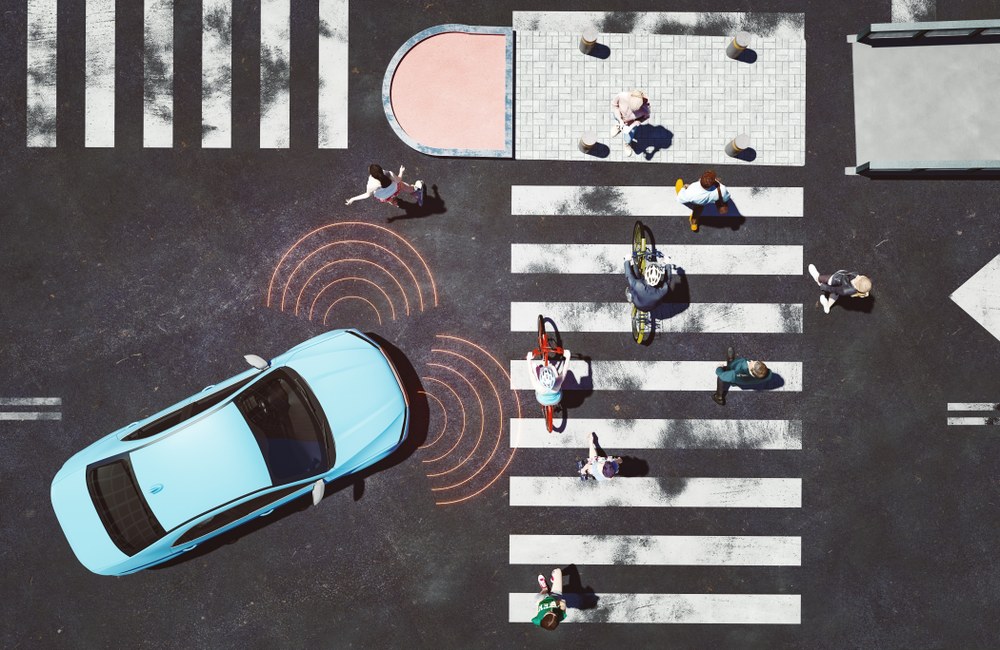The Institute for AI Safety and Security

iStock.com/gremlin

Credit: iStock.com/Igor_Borisenko
At the Institute for AI Safety & Security, we research and develop AI-related methods, processes, algorithms, technologies and execution and system environments. Our focus is on safe and standard-compliant AI, cyber security in open data and service ecosystems and AI, as well as autonomous mobility and logistics facilitation.
Artificial intelligence (AI) it is a key technology. In the course of advancing digitalisation, we will encounter it more and more often and in an increasing number of areas. This also includes situations of high safety and security requirements or high demands regarding the protection of the underlying data which, for example, contains personal information or Intellectual Properties (IP). Accordingly, AI safety and security - being flawless and reliable to operate (safe) as well as protecting from external attacks (secure) – will become more relevant.
The future challenges for national and international economic players in the field of mobility and transport are inextricably linked to reliable and safe AI applications. This includes, for example, the AI-based perception of the surroundings by automated vehicles. Equally crucial is the trustworthy integration of distributed and heterogeneous databases from different players in the mobility and transport sector, as well as from related sectors. This is important for the realisation of intermodal mobility and logistics solutions, for example in the context of energy and smart cities.
Our goal
With our work, we contribute to ensuring operational safety and attack security for AI-based solutions in ambitious application classes. In addition to transport, energy and aerospace, these include other areas of application that are important for Germany as a business and science location, such as Industry 4.0 and other digitalisation-driven fields of innovation based on decentralised data and service ecosystems or a future platform and data economy.
The aim is to ensure that the solutions we provide always meet high standards of safety and security, openness and flexibility, resilience and cyber security. We want to overcome the barriers to the success of new technologies by enabling reliable AI through fundamental research and new methods.
The institute's unique selling point is therefore the integrated handling of safety and security aspects for safety-critical AI-based applications and AI-based solutions with high cyber security requirements.
DLR offers optimum framework conditions
An ideal framework for interdisciplinary and transdisciplinary research is provided by DLR's development activities and the associated research infrastructures. As an example, our researchers can access extensive data sets from DLR's large-scale research facilities in order to analyse them using AI or to utilise them in the construction of AI systems.
The expansion of these research and development activities for economically system-relevant infrastructures by DLR is intrinsic to the institute and is explicitly named in the Federal Government's Artificial Intelligence Strategy.
Operational and cyber security throughout the AI lifecycle
We make invaluable contributions to the responsible market introduction of ambitious AI-based products, primarily for ground-based transport systems, including road, rail and water, and beyond. In addition to the technical aspects, we also address social and regulatory frameworks.
The institute's areas of focus are:
Safe and standard-compliant AI
How can the safety and standard-compliant design of AI algorithms be guaranteed over the entire life cycle? And under what conditions can AI systems with online update capabilities be authorised?
Cyber security in data and service ecosystems and AI
How can data worthy of protection be stored in decentralised ecosystems in a trustworthy manner and how can its benefits be guaranteed for other stakeholders, for example in the automotive and railway sectors? How can data, AI algorithms and services be protected against cyber-attacks?
Autonomous mobility and logistics facilitation
What assistance functions do vehicle-based solutions on road, rail and water need to facilitate their market introduction?
These subject areas are currently organised by four scientific departments in terms of content and development. These departments are supported by transfer-oriented, strategic and administrative organisational units. The institute benefits from DLR's decades of experience in the development, certification and operation of safety-critical systems for aeronautics, space, energy, transport and security.
Our research fields at a glance:
- AI Engineering - Increasing the connectivity, resilience and cost-effectiveness of AI; improving the ability of humans and AI to interact.
- Algorithms & Hybrid Solutions - Research into and further development of safe and secure AI, taking into account society, human beings and technology.
- Safety-critical Data Infrastructure - Requirements for secure data exchange and robust AI applications in industry and research.
- Execution Environments & Innovative Computing Methods - Attack-proof and robust AI by securing the entire execution system.
- Business Development and Strategy - Interdisciplinary foundations for trustworthy AI, social acceptance and technology transfer.

